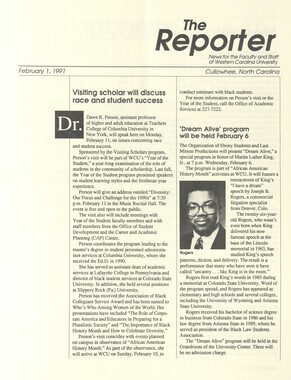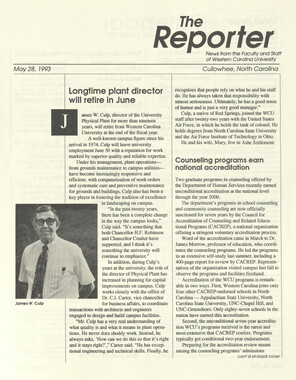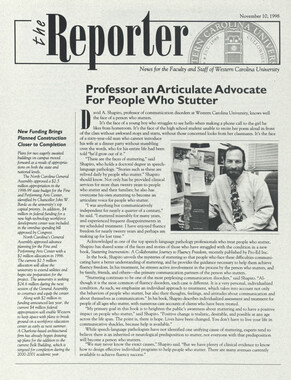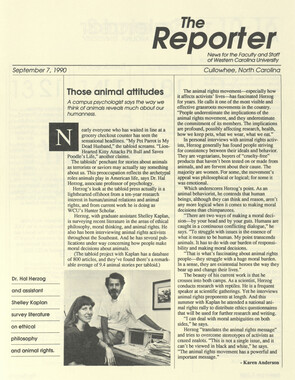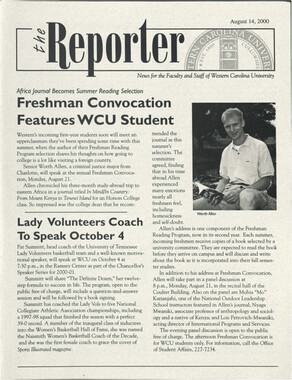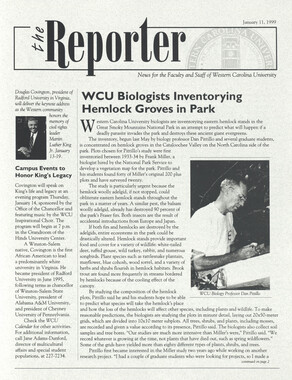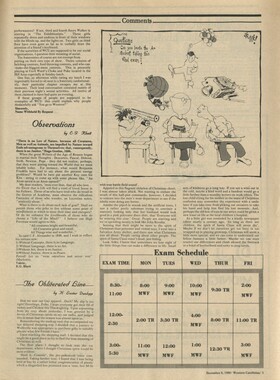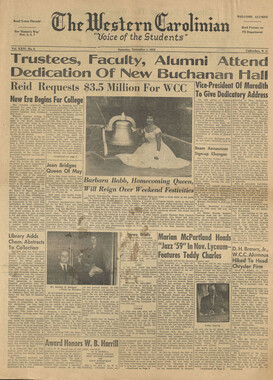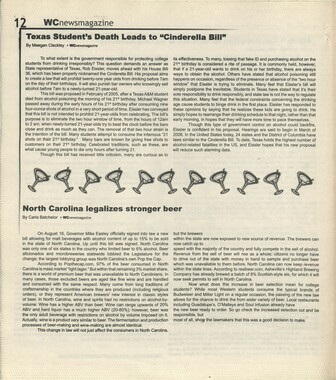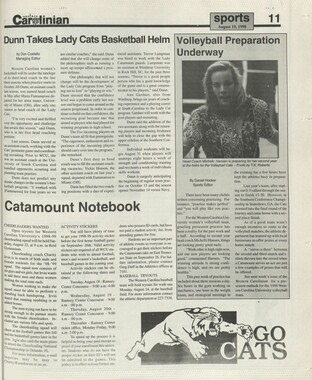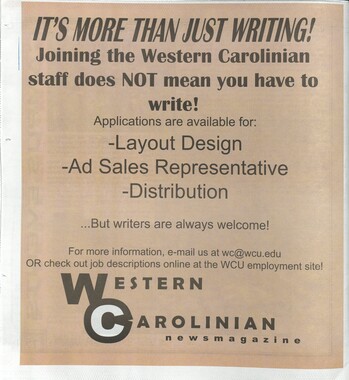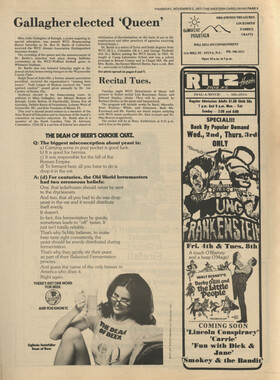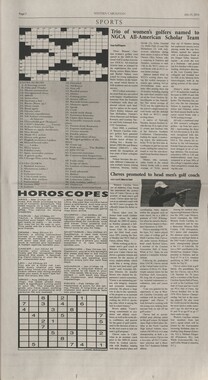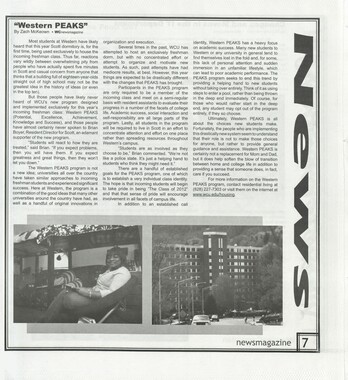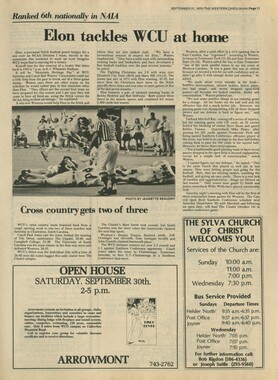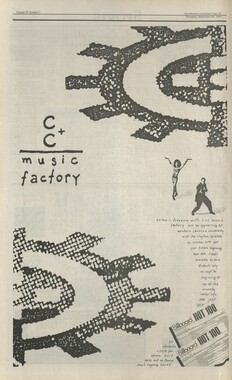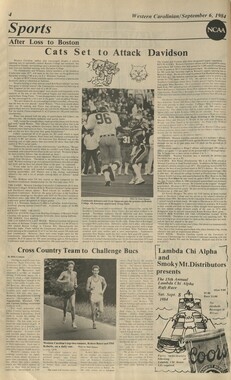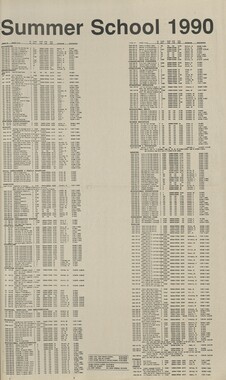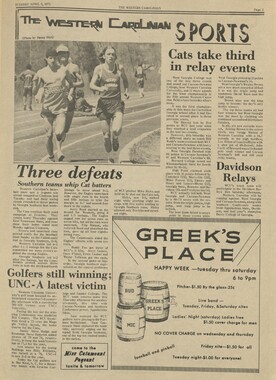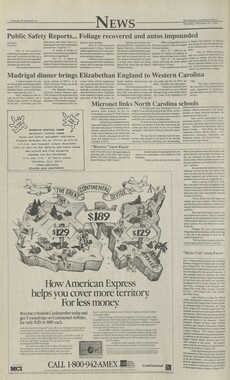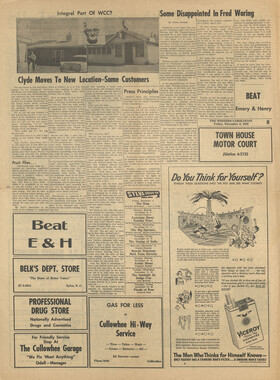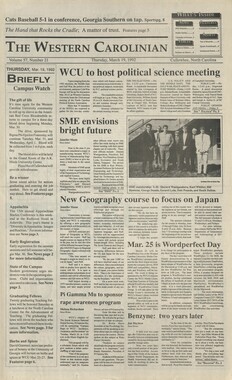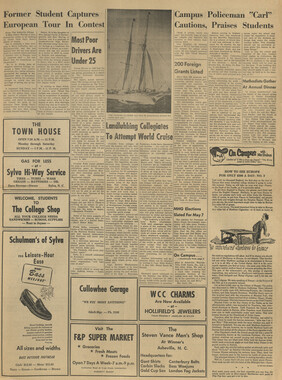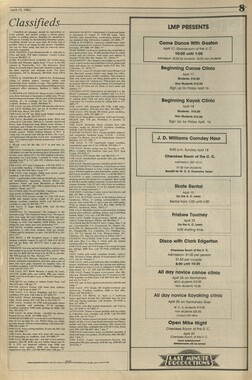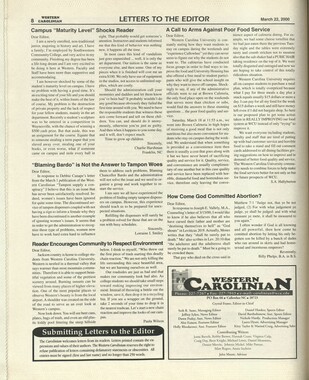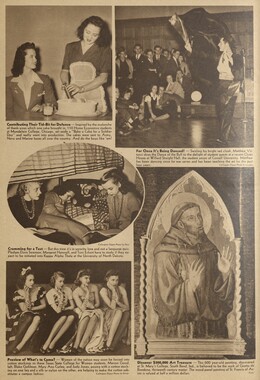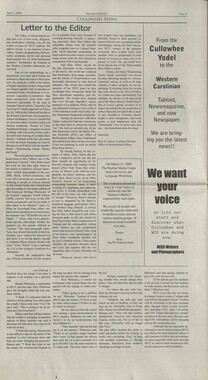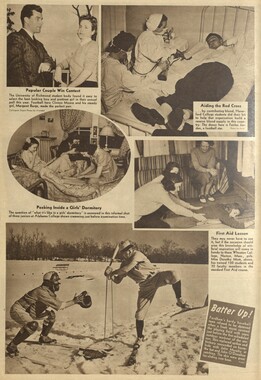Western Carolina University (20)
View all
- Canton Champion Fibre Company (2308)
- Cherokee Traditions (291)
- Civil War in Southern Appalachia (165)
- Craft Revival (1942)
- Great Smoky Mountains - A Park for America (2946)
- Highlights from Western Carolina University (430)
- Horace Kephart (941)
- Journeys Through Jackson (159)
- LGBTQIA+ Archive of Jackson County (85)
- Oral Histories of Western North Carolina (314)
- Picturing Appalachia (6873)
- Stories of Mountain Folk (413)
- Travel Western North Carolina (160)
- Western Carolina University Fine Art Museum Vitreograph Collection (129)
- Western Carolina University Herbarium (92)
- Western Carolina University: Making Memories (738)
- Western Carolina University Publications (2491)
- Western Carolina University Restricted Electronic Theses and Dissertations (146)
- Western North Carolina Regional Maps (71)
- World War II in Southern Appalachia (131)
University of North Carolina Asheville (6)
View all
- Allanstand Cottage Industries (62)
- Appalachian National Park Association (53)
- Bennett, Kelly, 1890-1974 (1463)
- Berry, Walter (76)
- Brasstown Carvers (40)
- Carver, George Washington, 1864?-1943 (26)
- Cathey, Joseph, 1803-1874 (1)
- Champion Fibre Company (233)
- Champion Paper and Fibre Company (297)
- Cherokee Indian Fair Association (16)
- Cherokee Language Program (22)
- Crowe, Amanda (40)
- Edmonston, Thomas Benton, 1842-1907 (7)
- Ensley, A. L. (Abraham Lincoln), 1865-1948 (275)
- Fromer, Irving Rhodes, 1913-1994 (70)
- George Butz (BFS 1907) (46)
- Goodrich, Frances Louisa (120)
- Grant, George Alexander, 1891-1964 (96)
- Heard, Marian Gladys (60)
- Kephart, Calvin, 1883-1969 (15)
- Kephart, Horace, 1862-1931 (313)
- Kephart, Laura, 1862-1954 (39)
- Laney, Gideon Thomas, 1889-1976 (439)
- Masa, George, 1881-1933 (61)
- McElhinney, William Julian, 1896-1953 (44)
- Niggli, Josephina, 1910-1983 (10)
- North Carolina Park Commission (105)
- Osborne, Kezia Stradley (9)
- Owens, Samuel Robert, 1918-1995 (11)
- Penland Weavers and Potters (36)
- Roberts, Vivienne (15)
- Roth, Albert, 1890-1974 (142)
- Schenck, Carl Alwin, 1868-1955 (1)
- Sherrill's Photography Studio (2565)
- Southern Highland Handicraft Guild (127)
- Southern Highlanders, Inc. (71)
- Stalcup, Jesse Bryson (46)
- Stearns, I. K. (213)
- Thompson, James Edward, 1880-1976 (226)
- United States. Indian Arts and Crafts Board (130)
- USFS (683)
- Vance, Zebulon Baird, 1830-1894 (1)
- Weaver, Zebulon, 1872-1948 (58)
- Western Carolina College (230)
- Western Carolina Teachers College (282)
- Western Carolina University (2008)
- Western Carolina University. Mountain Heritage Center (18)
- Whitman, Walt, 1819-1892 (10)
- Wilburn, Hiram Coleman, 1880-1967 (73)
- Williams, Isadora (3)
- Cain, Doreyl Ammons (0)
- Crittenden, Lorraine (0)
- Rhodes, Judy (0)
- Smith, Edward Clark (0)
- Appalachian Region, Southern (2569)
- Asheville (N.C.) (1923)
- Avery County (N.C.) (26)
- Blount County (Tenn.) (195)
- Buncombe County (N.C.) (1672)
- Cherokee County (N.C.) (283)
- Clay County (N.C.) (555)
- Graham County (N.C.) (236)
- Great Smoky Mountains National Park (N.C. and Tenn.) (519)
- Haywood County (N.C.) (3569)
- Henderson County (N.C.) (70)
- Jackson County (N.C.) (4912)
- Knox County (Tenn.) (35)
- Knoxville (Tenn.) (13)
- Lake Santeetlah (N.C.) (10)
- Macon County (N.C.) (420)
- Madison County (N.C.) (215)
- McDowell County (N.C.) (39)
- Mitchell County (N.C.) (132)
- Polk County (N.C.) (35)
- Qualla Boundary (982)
- Rutherford County (N.C.) (76)
- Swain County (N.C.) (2182)
- Transylvania County (N.C.) (270)
- Watauga County (N.C.) (12)
- Waynesville (N.C.) (86)
- Yancey County (N.C.) (72)
- Aerial Photographs (3)
- Aerial Views (60)
- Albums (books) (4)
- Articles (1)
- Artifacts (object Genre) (228)
- Bibliographies (1)
- Biography (general Genre) (2)
- Cards (information Artifacts) (38)
- Clippings (information Artifacts) (191)
- Copybooks (instructional Materials) (3)
- Crafts (art Genres) (622)
- Depictions (visual Works) (21)
- Design Drawings (1)
- Drawings (visual Works) (185)
- Envelopes (73)
- Exhibitions (events) (1)
- Facsimiles (reproductions) (1)
- Fiction (general Genre) (4)
- Financial Records (12)
- Fliers (printed Matter) (67)
- Glass Plate Negatives (381)
- Guidebooks (2)
- Internegatives (10)
- Interviews (815)
- Land Surveys (102)
- Letters (correspondence) (1013)
- Manuscripts (documents) (618)
- Maps (documents) (177)
- Memorandums (25)
- Minutes (administrative Records) (59)
- Negatives (photographs) (6090)
- Newsletters (1290)
- Newspapers (2)
- Notebooks (8)
- Occupation Currency (1)
- Paintings (visual Works) (1)
- Pen And Ink Drawings (1)
- Periodicals (193)
- Personal Narratives (10)
- Photographs (12976)
- Plans (maps) (1)
- Poetry (5)
- Portraits (4568)
- Postcards (329)
- Programs (documents) (181)
- Publications (documents) (2443)
- Questionnaires (65)
- Relief Prints (26)
- Sayings (literary Genre) (1)
- Scrapbooks (282)
- Sheet Music (2)
- Slides (photographs) (402)
- Songs (musical Compositions) (2)
- Sound Recordings (796)
- Specimens (92)
- Speeches (documents) (18)
- Tintypes (photographs) (8)
- Transcripts (322)
- Video Recordings (physical Artifacts) (23)
- Text Messages (0)
- A.L. Ensley Collection (275)
- Appalachian Industrial School Records (7)
- Appalachian National Park Association Records (336)
- Axley-Meroney Collection (2)
- Bayard Wootten Photograph Collection (20)
- Bethel Rural Community Organization Collection (7)
- Blumer Collection (5)
- C.W. Slagle Collection (20)
- Canton Area Historical Museum (2110)
- Carlos C. Campbell Collection (462)
- Cataloochee History Project (64)
- Cherokee Studies Collection (4)
- Daisy Dame Photograph Album (5)
- Daniel Boone VI Collection (1)
- Doris Ulmann Photograph Collection (112)
- Elizabeth H. Lasley Collection (1)
- Elizabeth Woolworth Szold Fleharty Collection (4)
- Frank Fry Collection (95)
- George Masa Collection (173)
- Gideon Laney Collection (452)
- Hazel Scarborough Collection (2)
- Hiram C. Wilburn Papers (28)
- Historic Photographs Collection (236)
- Horace Kephart Collection (861)
- Humbard Collection (33)
- Hunter and Weaver Families Collection (1)
- I. D. Blumenthal Collection (4)
- Isadora Williams Collection (4)
- Jesse Bryson Stalcup Collection (47)
- Jim Thompson Collection (224)
- John B. Battle Collection (7)
- John C. Campbell Folk School Records (80)
- John Parris Collection (6)
- Judaculla Rock project (2)
- Kelly Bennett Collection (1482)
- Love Family Papers (11)
- Major Wiley Parris Civil War Letters (3)
- Map Collection (12)
- McFee-Misemer Civil War Letters (34)
- Mountain Heritage Center Collection (4)
- Norburn - Robertson - Thomson Families Collection (44)
- Pauline Hood Collection (7)
- Pre-Guild Collection (2)
- Qualla Arts and Crafts Mutual Collection (12)
- R.A. Romanes Collection (681)
- Rosser H. Taylor Collection (1)
- Samuel Robert Owens Collection (94)
- Sara Madison Collection (144)
- Sherrill Studio Photo Collection (2558)
- Smoky Mountains Hiking Club Collection (616)
- Stories of Mountain Folk - Radio Programs (374)
- The Reporter, Western Carolina University (510)
- Venoy and Elizabeth Reed Collection (16)
- WCU Gender and Sexuality Oral History Project (32)
- WCU Mountain Heritage Center Oral Histories (25)
- WCU Oral History Collection - Mountain People, Mountain Lives (71)
- WCU Students Newspapers Collection (1923)
- Western North Carolina Tomorrow Black Oral History Project (69)
- William Williams Stringfield Collection (2)
- Zebulon Weaver Collection (109)
- African Americans (390)
- Appalachian Trail (35)
- Artisans (521)
- Cherokee art (84)
- Cherokee artists -- North Carolina (10)
- Cherokee language (21)
- Cherokee pottery (101)
- Cherokee women (208)
- Church buildings (189)
- Civilian Conservation Corps (U.S.) (111)
- College student newspapers and periodicals (2012)
- Dams (107)
- Dance (1023)
- Education (222)
- Floods (61)
- Folk music (1015)
- Forced removal, 1813-1903 (2)
- Forest conservation (220)
- Forests and forestry (1184)
- Gender nonconformity (4)
- Great Smoky Mountains National Park (N.C. and Tenn.) (181)
- Hunting (45)
- Landscape photography (25)
- Logging (119)
- Maps (83)
- Mines and mineral resources (8)
- North Carolina -- Maps (18)
- Paper industry (38)
- Postcards (255)
- Pottery (135)
- Railroad trains (72)
- Rural electrification -- North Carolina, Western (3)
- School integration -- Southern States (2)
- Segregation -- North Carolina, Western (5)
- Slavery (5)
- Sports (452)
- Storytelling (243)
- Waterfalls -- Great Smoky Mountains (N.C. and Tenn.) (66)
- Weaving -- Appalachian Region, Southern (280)
- Wood-carving -- Appalachian Region, Southern (328)
- World War, 1939-1945 (173)
The Reporter, August 1997
-
The Reporter is a publication produced by Western Carolina University featuring news, events, and campus community updates for faculty and staff. The publication began in August of 1970 and continues digitally today. Click on the link in the “Related Mate
-
-
The Reporter News from the Faculty and Staff of Western Carolina University The 1997-98 Year Begins August 29,1997 News file • The Strategic Planning Committee will sponsor a forum Thursday, September 4, to discuss the university's strategic vision, 3- 5 p.m., Ramsey Center Hospitality Room. The university's mission statement is available on the Web under the Chancellor's Updates page. • Want season or single-game tickets to see the Catamounts play? You may purchase your tickets on-line by accessing WCU's Web Page and using VISA or MasterCard. Orders will be transmitted over a secured line (not read by anyone other than athletics department personnel). To find the order page, go to www.wcu. edu/athletics.html and fill in the form. Tickets will be mailed or left for pickup, depending upon when orders are placed. Orders should not be placed on the Friday before a home game or the day of a game because messages will not be received until the following Monday. • WCU's Wellness Program has scheduled a seven-week polarity yoga class, September 15 through October 27, 5:30-7 p.m., in the auxiliary gym at Reid. Cost for faculty and staff is $30 for the full course or $5 per class. For students, $20 for the full course and $3 per class. Space is limited. Contact the Wellness Program at 227- 7018 to reserve a space. Remarks from the August 12 general faculty meeting Terry Kinnear, Chair of the I Faculty Our focus this morning will be on why self-gover-nance is imperative, and what we might expect in its absence. Special attention will be given to what I consider to be one of the most essential elements in effective university governance. This is faith. The context within which Western Carolina University functions is sufficient reason for us to collectively engage in the management of our institutional affairs. Much has happened during the past year within the University of North Carolina system and higher education in general. Think about what you read and heard last year, the changes introduced during the summer, and projections for this coming academic year and beyond. The legislative mandate to review faculty workloads! The pressure of enrollment! Beginning the academic year with an uncertain budget, and knowing there would be a cut! Dr. Bardo, of course, addressed and clarified these issues in his July 9 letter to the faculty. All were predictable, yet there Cullowhee, North Carolina was still considerable surprise when their impact was felt this summer and further decisions about scheduling classes had to be made. These are organization- level issues, not just matters of concern to us in our respective departments or individually in cont'd Western Carolina University students, faculty, staff, and administrators enjoy the new outdoor terrace of the A.K. Hinds University Center at a reception following a ribbon-cutting ceremony to re-dedicate the facility, which is open again for fall semester after being closed for nearly two years and close to $4 million in renovation work. Kinnear 2 1997-98 cont'd our classrooms. To think of them solely at the department level is myopic, and we cannot advance institutionally unless we continue to develop a collective perspective. I believe at this point in the development of Western there is consensus that the management of change is not simply the responsibility of the chancellor, the vice chancellors, or the deans. They might be able to buffer us from some external forces, such as buying time to enhance low-enrollment programs or securing funds for some part-time faculty. Nonetheless, control over the effects of externally mandated demands is limited; for example, the review of faculty workloads was mandated legislatively two years ago. Post-tenure review is being imposed by General Administration, and its impetus stems from beyond the University of North Carolina system. We cannot deny, ignore, or simply react to externally imposed change. It is not possible to divorce ourselves from what goes on beyond the university as if what we are doing around teaching and learning is independent of outside forces. Indeed, others' interests and demands are intimately intertwined with what we do in the classroom. House Bill 229 not only addresses faculty workloads, but explicitly states: "Teaching and learning constitute the primary service that the university renders to society. Teaching, or instruction, is the primary responsibility of each of the constituent institutions [in North Carolina].'' In other words, legislators are making what goes on in the classroom their business. Likewise, they are seeing to it that our classroom work is done more efficiently with favorable, measurable results. That is, to their liking and matching their evaluative criteria, not our own. The perceptions "out there" of what we do are not necessarily the same as those we hold. The general public and innumerable special interest groups are formulating recommendations and requirements based on their particular versions of reality. Not mine, yours, or ours. And it appears theirs has the momentum. Others beyond higher education are seeing to it that we change. We are being expected to do a better job than we are already, and with less. As an aside, there is ample evidence in private enterprise that superior work, better than in the past, can be accomplished with fewer resources. Obviously, we cannot afford to pay lip service to external forces. We can, however, manage the effects. While we operated in a reactive mode for some time, one of the major challenges before us is to bring about change at Western that is synchronized with public sentiment and precludes mandates imposed from the outside. I believe we can change externally held perceptions of the work we do at WCU. As a matter of fact, this has already begun. I heard it during the spring from students who will be newly enrolled this fall, and their parents. Knowledge of our electronic advancements in the classroom and the residence halls is becoming widespread. There are favorable external reactions to the enhancement of Western's academic and behavioral expectations of students. We will, nonetheless, still have to respond to others' perceptions of higher education. We must all pay close attention to what is going on with public education in other states. North Carolina certainly is not the first state with post-tenure review. Consider further evidence of external forces. While out of town this summer, I read in the June 18 Cleveland Plain Dealer the following: "According to a report released June 17 by the Council for Aid to Education, if enrollment and financing trends continue to grow at their current rate, higher education will fall short of what it needs to service the expected student population. The shortfall will be $38 billion in the year 2015." This report calls for the radical restructuring of universities. This would include such efforts as overhauling university governance, the report claims. A major effort to accomplish this on our own campus, of course, is currently under way. The proposal explicitly identifies the need to limit the power of individual departments and to redefine and often reduce the ambitions of different institutions. Mandated program review is a clear example of an attempt to impact institutional ambitions, and this obviously affects individual departments. The proposal also calls for a sharing of resources. The Western North Carolina Library Network is one example of a partnership with Western, UNCA, and Appalachian that enables each university to benefit immensely from the resource sharing that comes from interinstitutional cooperation. In the January 31, 1997, Chronicle of Higher Education , Columbia Teacher's College president, Arthur Levine, asserts: "Higher education simply must learn to function as a mature industry. Yet, faced with declining resources, higher education's first response was to try to raise more money. Tuition prices rose well above the rate of inflation. More admissions officers were hired, to attract more students. Development staffs were expanded, to raise additional money. More student-affairs professionals were hired, to reduce attrition. And financial staffs were beefed up, to control spending." Levine notes "... many institutions found that this course of action only increased costs; it didn't produce more revenue." Surprised? These efforts did not work, in part because they are too simplistic. To assume a new person or a changed role is a solution to a complex problem is shortsighted and dangerous. The problem of rising costs and declining resources can only be resolved if tackled sys-temically. Tough issues are before us this year and we are all responsible for attending to them, together. So, why don't we tackle the difficult matters energetically and with one heart? Hypothetically, let us assume we already have in place many of the pieces for governance by the faculty and the other key players at WCU. What's missing? Alan Guskin, chancellor of Antioch University, gives us a clue in Change magazine: Faculty "... are too good at analyzing all the difficult issues ... and thereby immobilizing . .. [themselves]. If we look holistically at the world around us and allow our While we operated in a reactive mode for some time, one of the major challenges before us is to bring about change at Western that is synchronized with public sentiment and precludes mandates imposed from the outside. Dr. Terry Kinnear August 29,1997 • The Reporter 1 intuitive skill to roam a little, it will. . . become obvious that we cannot continue to practice our academic professions with dignity and integrity without fundamental changes. Heretical as it may —— sound, we must put the brakes on our analytical abilities and take some leaps of faith." (Credit also goes to Kierkegaard, of course.) Collective governance, I am convinced, is some-thing that has never existed at WCU, and the consciousness that created what we currently have is outdated and no longer useful. Peter Senge, in "The Fifth Discipline," suggests that we may not be prisoners of the current structure, but rather our own thinking. In other words, we seek and conceptualize solutions to our problems in terms of old ways of thinking. Therefore, the consciousness that shaped our current governance structure and processes cannot create something dramatically different. So, what to do? In "Designing Effective Organizations, w David Banner asserts: "If you can't solve a problem with your existing assumptions, change your assumptions and the solution can come easily. Stay rigid in your world view, and the answer will escape you." A shift from what we know to the unknown, to create something that has never existed, is risky, and it will require a leap of faith. It will take faith in oneself and in each other. But it also requires faith in Western and especially the governance process. This, I am afraid, is one of the places we may be stuck; faith in our ability to effect positive change on A shift from what we know to the unknown, to create something that has never existed, is risky, and it will require a leap of faith. Dr. Terry Kin near campus may be lacking. Peter Vaill informs us in "Managing as a Performing Art," that governance cannot be accomplished by 'science'; that is, we cannot logically determine what causes ————— will produce what effects at the university. He states, "... we need faith in our judgment, our intuition, our ability to understand ourselves and others, all in some broader environ-ment." Our broader environment minimally includes the area of higher education, present and future conditions (economic, technological), and pressure from our various publics. Vaill argues that this faith must be grounded in something deeper and broader than our own work place. Where might this be? Consider the position of Peter Ewell, who is affiliated with the National Center for Higher Education Management Systems. He argues we must restore our links with society. Ewell's belief is ".. . the academy has lost in the eyes of the public (and in its own eyes as well) much of its sense of collective purpose, and that this is precisely the quality for which it once was accorded deference and respect." Collective responsibility, he asserts,"... is consistent with what society wants, and it is based on what we do best." Service to society is what has even been legislated, so let us concentrate our energies on what we do best together — teaching and learning. The opening of school is invariably characterized by real optimism for change and development. This, unquestionably, is my favorite time of the academic year. Student grading has not piled up, I still anticipate the best classes ever, and conflicting demands for time will remain minimal for another few days. It is time to exercise the greater flexibility and degrees of freedom that come with early fall semester. This is also an opportune time to formulate personal resolutions; I encourage all of us to monitor even more closely what is going on beyond these mountains that affects Western. The Task Force on University Governance, chaired by Jane Hall, will be continuing its work this year; this challenge before us all is far more complex and the process more onerous than many of us could have imagined when I stood before you twelve months ago. The work of creating a viable system should not, of course, be that of the Task Force any more than we want General Administration to tell us which programs to eliminate. So, let us think now, when we are relatively free from the muddle of classes and campus activities. Where do we, individually and in the aggregate, want to have impact? If Western Carolina University is to prosper in the next millennium there must be collective effort. We must work jointly, pondering and preparing mechanisms for the creation of our future. Universities have not been known to rapidly turnabout; while this may have been satisfactory in the past, sluggish change is no longer acceptable. If Microsoft can rapidly turn 180 degrees and a failing, bureaucratic Chrysler plant can experience a massive positive cultural change in less than a year, we can bring about positive change at WCU to protect our interests as well as those of our students. .. before we are faced with more undesirable mandates from others. As with most organizations, however, it is difficult to change course. I would like to close by drawing from Richard Mowday's 1996 presidential address to the Academy of Management. He provides a vivid picture of the need to address external forces, a fitting metaphor about change, an illustration of how difficult organizational development really is, and a glimpse of the role of faith. Okay, here's the story, with two radio voices addressing each other at sea: Voice 1 Please divert your course 15 degrees to the north to avoid a collision. Voice 2 Recommend you divert YOUR course 15 degrees to the south to avoid a collision. Voice 1 This is the Captain of a U.S. Naval vessel. I say again, divert YOUR course. Voice 2 No. I say again, you divert YOUR course. Voice 1 THIS IS THE AIRCRAFT CARRIER ENTERPRISE. WE ARE A VERY LARGE WARSHIP OF THE U.S. NAVY. DIVERT YOUR COURSE NOW! Voice 2 This is a lighthouse. Your call. At this point in our history we have a bright picture painted before us. To rephrase the line from a Timbuk 3 song of several years ago, "Our future's so bright I gotta wear shades." So, let's get on with our business of creating our future and carefully attending to those external agents. We must keep abreast of changes in our environment, manage others' perceptions, and continue on our current path to excellence. To the faculty, the administration, the staff, and other members of this university, I say it's our call. Today, it is your call. I wish each of you the best for the 1997-98 academic year. I hope that it is better than you could ever imagine. The Reporter • August 29,1997 4 1 997-98 cont'd Dr. John W. Bardo, Chancellor I always like to start by welcoming colleagues back to campus, but for many of you, it is really superfluous; you did not go away. I hope you did have a restful summer and had the opportunity to do some things and to move parts of your life forward as this year we are going to be very busy. Terry (Kinnear) has introduced some issues that I agree are very important. It is critical for this university that we continue to develop effective programs of university governance. Effective governance is a necessary antecedent for the work in which we are engaged. I hear a lot of speeches every year. I give a lot speeches every year. I hope you all as faculty appreciate that I have very rarely met a leader in higher education, either administrator or faculty, who has the clarity of vision and the understanding of the situation of higher education that Terry has. It is a real pleasure to have him as a partner in the development of this issue in the university. There really is a three-person partnership that brings together the interests of this institution. Terry is a key partner. Ken Wilson, who has been our chair for the Board of Trustees, has also been a tremendous partner, and Ken also shares Terry's vision of where the university can go and what it can be. We will certainly miss Ken. Today, I would like to talk with you about several issues of importance. I am not going to spend a lot of time talking about program review, workload review, or the specifics of enrollment. You should have my summer letter that deals with these issues in some depth. If there are further questions I will be happy to answer them individually. I would like to take a couple of Terry's themes, expand upon them, and put them in a context of specific activities that I feel that we need to be engaged in this year. Back in •PFjei February I# i996> MM we assembled Bardo in the College of Business auditorium and I addressed you with regard to setting institutional direction. This speech, which has become the basis for what has been fashioned the "Plan for Excellence," addressed questions of reputation of the university, the need to increase academic rigor, and some specific programs that we would institute to affect both the substance and image of academic excellence. I presented the vision that had emerged from a whole series of conversations. These were conversations with you as faculty members, conversations with the community, with the students, with alumni, with business leaders, and with political leaders from around the state. With the assistance from our friends in the advancement office, I toured most of the state and had the opportunity to meet with people of all ilks and varieties who had interest in what Western was doing. And out of all those conversations was synthesized a basic vision of this institution — a vision of this institution based on the notion of academic quality. We are the faculty that can make this university one of the leading centers of teaching and learning in the United States. I am absolutely convinced of that, and nothing that I have seen in two years, either on this campus or off this campus, changes my mind in any way. The essentials of this institutional direction came primarily from you. Very little of it was new with me. I did not come to Western thinking I was going to be doing these kinds of things and working on these sorts of issues. I fully believed that my job was going to be primarily in the area of fund raising, community development and external work. And you told me that really was not the primary issue. The primary issue had to do with the future of this university internally, and the future of where this university was going. One of the things that somewhat surprised me when I got here, and I still have concern over, was that we seem to have a culture on this campus that is self-deprecating. There is an internal campus culture that in some measure deprecates the achievements of our people and magnifies the value and importance of work done elsewhere. We unfortunately share that feeling with our students. In some ways, we have created a "self-fulfilling prophecy"— we do not think very well of ourselves, and we convey that to the students and to the outside community. Over the last two years, we have made some strides in affecting that culture, but it still has not dissipated. We still are prone to deprecate the work of our campus and to magnify the quality of the work of other campuses. To be sure, we have taken major steps together, but there still is the myth that Western is not academically very strong. I would like to have you think together with me about what constitutes academic quality. We should know that there can be no one definition of There is an internal campus culture that in some measure deprecates the achievements of our people and magnifies the value and importance of work done elsewhere. Chancellor John W. Bardo quality. Quality depends entirely on the mission and goals of the university. To be sure, the mission and goals need to be considered within the broader context of the norms, values, and expectations of our disciplines and higher education nationally. But one can define various types of quality very differently within that framework. We are a regional comprehensive university, and we are a very good one. Last year, with very little rancor, we redeveloped our mission statement. That is an activity ____ that many times takes two or three years on a campus and ends with a split vote of the faculty. We had very little rancor. We have a common consensus around some basic elements as to who we are and where we're going: — We understand that we have a primary mission in teaching and learning at the undergraduate and graduate level. —We are committed to the notion of the teacher-scholar. Research and scholarly pursuits play a significant role in the life of this campus. —We understand that education has an underlying values component that involves behavior and beliefs, not just knowledge. —We know that we have aspirations for the future that exceed our current grasp. Let us look in a little more detail at these issues. In the area of teaching and learning, the mission development process was based on campus consensus. Consensus is not unanimity, and some of you may not fully August 29,1997 • The Reporter i. agree with the emphasis on teaching and learning. However, the mission statement makes it clear that our first obligation must be to our students and their development. This, fortunately, also fits with the Board of Governors perspective on what the role of universities like Western must be within the system of higher education in North Carolina. Over the past three semesters, you have made significant strides in improving the teaching and learning situation for our students. Most of you have raised your expectations of the work required for your classes. You are defining the nature of appropriate learning in your courses and not allowing the students to tell you that the work is too difficult. Some of you are requiring attendance of your students because you understand that their education, their real education, takes place within the context of the interaction with you and with their colleague students. You are helping students understand that to miss class is to miss their education. If they choose not to have that real education, you are penalizing them for not attending. (This, by the way, is consistent with research findings nationally. Students who are required to attend class tend to learn more, do better on tests, and, generally, feel that they got a better education). Many, many of you are being innovative. You have moved to active learning paradigms, you are engaging your students in meaningful learning-based assignments, and you are supporting the students in the development of their own research and scholarly capacities. You may not fully appreciate it, but much of the work going on at Western is at the forefront nationally. I have spent much of the summer looking at other colleges and universities to see what they are doing. In so many ways, your work is at the leading edge of what is happening around the country. You know that I have interest in the applications of technology to teaching and learning, so I will briefly focus my comments in this area. Our new president, Molly Broad, suggested that I look at Sonoma State University in California, since it has recently gone through the type of transition that we are working through. In 1992, their average SAT was around 900; this fall it will approach 1100. Their enrollment was down and they had a 50 percent vacancy rate in their residence halls; today all their rooms are filled and they are in the process of building facilities for 1,000 new beds. In California, they ——— were known as Granola Tech. Today, their major competition for students is the University of California at Berkeley and Cal Poly. They received 5,000 applications for 900 places in their freshman class. They also are nationally known for their uses of computing in teaching and learning, and Kiplinger Magazine has listed them as one of several public universities that give a private school quality education. What I found at Sonoma surprised and pleased me. They have an Internet-intensive campus at about the same level as ours. They require all entering students to have a computer that is capable of working with their network. They have very strong network-based registration, degree audit, and library access. Our You may not fully appreciate it, but much of the work going on at Western is at the forefront nationally. ... In so many ways, your work is at the leading edge of what is happening around the country. Chancellor John W. Bardo library access seems to be at about the same level of development as theirs. We are significantly behind them on registration, advising, and degree audit capabilities. However, our capacity and uses of technology in the classroom are significantly above theirs, and they are nationally known. Sonoma has only one multimedia electronic classroom, and it is used primarily for training. We have four of these rooms, and they are very well used. Last year, 248 sections of courses with total enrollments of 5,712 students used the multimedia classrooms. Sonoma does not have the equivalent of the "faculty sandbox" in the Coulter Center that allows faculty the opportunity to try out new technologies. And, Sonoma does not have an endowed professorship in applying technology to teaching and learning like the one we just received from President Spangler. Although I always hesitate to single out a group or person for mention, since there are innumerable excellent examples of innovative, exciting work going on on this campus, one development at Western is so out of the ordinary that I really must bring it to your attention. It has to do with the English department. You may not be aware, but every first-semester composition course this fall will be taught using our multimedia classrooms and will make use of the university's electronics technologies. This is a faculty-generated and faculty-managed initiative. The administration provided the venue, and the department ran with it. No other university in the UNC system has the capacity to move in this direction. Western's English department is literally working at the national "cutting edge" in teaching composition. I mention this meaningful move primarily because i t involved decisions made by an entire department - and you know what that's like. I also mention it because written communication is one of the most profound liberal learning skills that we can develop in students, so this effort is fundamental to the academic quality of this university. It is an excellent example of what Western's faculty can do when they think together about what it means to learn. Many of you are doing excellent work with technology. Our multimedia classrooms are oversubscribed. You are using the teaching demonstration carts to near capacity, and many of you are making use of the Internet's capabilities in your course assignments and your interaction with students. There are many exciting, innovative approaches to learning being played out on this campus by faculty, individually and in small groups. I hope you have a sense of pride in your work, and I hope you will help our students understand how lucky they are to be at Western and to be able to work with such fine faculty. This leads me to my second point. In developing the new mission statement, there was a confirmation of the faculty's commitment to the notion of the professor as a teacher/scholar. We know that our primary obligation has to be to student learning, but we have as faculty an abiding commitment to research and scholarly development. That is as it should be. Again, because of our self-deprecating culture on this campus, we don't The Reporter ' August 29,1997 6 MEETING OF THE MINDS—Western Carolina University faculty members and administrators enjoyed a morning reception Tuesday, August 12, outside the Recital Hall of the Coulter Building prior to convening for the annual fall faculty meeting, part of the traditional back-to-school activities at WCU. 1 997-98 cont'd really consider how much significant work is going on and how much our colleagues are really doing. Many of our senior faculty are respected scholars in their fields and significant numbers of young faculty are building reputations. What is most impressive is that the majority of these faculty have had to cope with the personal tension between the university's primary teaching and learning mission and their personal expectations for their own scholarly development. Most of these faculty taught three and four organized courses per semester. Some served as department heads dealing with the administrative processes, they've taught courses, dealt with individual student's needs, and still found time to be active, leading scholars in their fields. At regional universities like Western where we are funded by the legislature to educate the people of the state, there will always be a tension between our own needs for professional development and contributing to our professional fields, and the demands of a relatively high teaching load. Most of us know this, and we have worked out an accommodation. But we do have some work to do in this area. What I am really getting to with all of this is that we as a faculty have a great deal to be proud of, and we should not be shy about expressing that pride even though it is not part of our traditional culture. Unfortunately, we have not done a very good job of helping our students or our community recognize the quality of what we do. We know, for example, that we lose significant numbers of excellent upper-level students because they transfer to "better universities" to get their degrees. Surveys show that our students are satisfied with the level and quality of education at Western, that you are academically challenging them, and that they like being here. However, they do not see this university as having a strong academic reputation. This is particularly unfortunate since we can document a better record of achievement than many universities that enjoy stronger academic reputations than Western. We need to change that. You deserve to be proud of what you are doing, and you should help your students and others know that they, too, should be proud. Our faculty's work is not only recognized in their fields, but it is being recognized publicly. Let me just give you a couple of more examples: —Robin Kowalski's research has been picked up on national television and international radio. —Don Chalker and Dick Haynes are receiving major attention for their work on world class schools. —Jo Ann and Jim Carland have been recognized as two of the most influential researchers in entrepreneurship in the world, and they have also established the Allied Academies, which is an academic organization that publishes ten journals. —Dan Southern was named North Carolina hematologist of the year and received the Sherwood Professional Achievement Award from the American Society of Clinical Laboratory Sciences. —Anne Rogers' research has been recognized by the U.S. Forest Service through its Windows on the Past Award. —And, of course, we all know of Rick Harrison's monumental 16-volume work on invertebrate zoology and Max Williams' and Cliff Lovin's historical research. But you may not be aware that Rick Wilson received the BERG Excellence in Research Award from the American Physical Therapy Association, or that Daryl Hale has had one of his works performed by Lynn Redgrave. I am mentioning these individuals not to single them out, but to flesh out the fact that wonderful, excellent research and scholarly work is going on all across this campus in field after field. We have exceptional people on this campus who are nationally known, and we should be proud of working with these colleagues. Western's programs continue to receive national accreditations. Just last week, our sport management program became one of only a dozen or so to receive national recognition. We seem to take this kind of information in stride and treat accreditations as minor victories. But, you know in most of our fields that have accreditation, a majority of programs at other universities do not. We have a wide array of accreditations. Our probation and suspension standards for freshmen exceed those of nearly every other university in the UNO system. It is harder for a freshman student to stay at Western than nearly any other UNC campus. You expect the best of your students, you expect them to perform, and you set the standards appropriately. Your use of technology in teaching and learning is not replicated anywhere in the UNC system, and in few places in the United States. Most of our departments have chosen to maintain small class sizes despite the pressures of research and scholarship. Seventy percent or more of our classes have fewer than 30 students in them and the median undergraduate lecture size at Western is 23. That compares very favorably with most private universities. This means that you are teaching, on average, three or four organized courses per semester while maintaining your commitment to your discipline. You truly have chosen to be teacher/scholars. People who really care about this university and know about us are not blind to the work that you are doing. This last year, for example, we had a 37 percent increase in the number of alumni who were willing to donate to this university. People put their money in what they believe in. Our endowment has grown in the last 18 months, from $8.5 million to $15.2 million, and we have three endowed professorships, two at the million-dollar level. Very few other campuses have any at the million-dollar level. In the last couple of weeks, we have received a commitment toward a third million-dollar professorship. We are not here for the money, that is cont'd, page 8 August 29,1997 » The Reporter Computer Center Help Client Services new hours include Sunday and most evenings. Monday-Thursday: 9 a.m.-4 p.m., 6-9:30 p.m. Friday: 9 a.m.-4 p.m. Saturday: 1-5 p.m., 6-9:30 p.m. (Sue Levere, 227-7282) Fitness Center Fall Hours Monday-Thursday: 6-8 a.m., noon-11 p.m. Friday: 6-8 a.m., noon-10 p.m. Saturday: 9 a.m.- 5 p.m. Sunday: 1-9 p.m. (Closed 8 a.m.-noon for weight training classes.) (227-7069) Friday, August 29 Hunter Library hours for Friday, 8 a.m.-6 p.m. (227-7306) Saturday, August 30 Hunter Library hours for Saturday, 10 a.m.-6 p.m. (227-7306) Computer Awareness Training. Saturday Tune-up Sessions. PC sessions: Netscape 9-11:30 a.m., and Word 11:45 a.m.-2:15 p.m. Mac sessions: Beginning Computer 9-11:30 a.m., and Netscape 11:45-2:15 p.m., Stillwell G57. Registration and pre-payment required. $15 fee includes take-home manual. Bring blank, formatted 3.5- inch diskette. (Tammy Haskett, 227-7397) Football, "Meet the Cats" scrimmage game. 10 a.m.- noon. The Catamount Club and WCU Alumni Association will sponsor a social with the football coaches following the game. Light refreshments furnished. 12:30-1:30 p.m., Hospitality Room, Ramsey Center. Scrimmage and social are open to the public. (227- 7377) Monday, September I Labor Day holiday. Classes resume 8 a.m., Tuesday, September 2. (227-7216) Tuesday, September 2 Hunter Library begins operating on regular hours. Through Saturday, Sept. 20. (227-7306) Hydrorobics/Water Aerobics. Increases flexibility and stamina and improves muscle tone. Water adds resistance, relaxes and massages the body. Bring towel. $45. Monday-Thursday, September 2-December 9. 5:15-6 p.m., Breese Pool (227-7397) Thursday, September 4 Presentation and workshop, "Beyond Self-Defense: Shared Investments and the Power of Caring," by Richard Keeling, M.D., director of University Health Services, University of Wisconsin-Madison. For faculty and staff. A 40-minute presentation on forces influencing students' attitudes and behaviors; what research tells us about how to (and how not to) change these. Sponsored by the Office for Student Development. 9:30-10:55 a.m., Grandroom, University Center. (227-7469) Friday-Sunday, September 5-7 Beginner Kayak Clinic. Learn the basics of Whitewater kayaking. Guides and equipment included. WCU students $20, non-students $35. Signup at UC. (227-7206) Saturday, September 6 Computer Awareness Training. Saturday Tune-up Sessions. PC session: Word 9-11:30 a.m., and Excel 11:45 a.m.-2:15 p.m., Forsyth 116. Mac sessions: Word 9-11:30 a.m., and Excel 11:45 a.m.-2:15 p.m., Stillwell G57. Registration and pre-payment required. $15 fee includes take-home manual. Bring blank, formatted 3.5-inch diskette. (Tammy Haskett, 227-7397) Beginning Climbing, Looking Glass Rock. Sponsored by Last Minute Productions. Two full days of rock climbing in the Pisgah National Forest at the famous Looking Glass Rock. WCU students $30, non-students $50. Sign-up at University Center. (227-7206) Track, WCU Invita tional. Men and Women's Cross Country. (227-7338) Concert. Cravin' Melon. Students $3, all others $5 at the door. Get tickets at UC. Sponsored by Last Minute Productions. 9 p.m., Grandroom, University Center. (227-7206) Sunday, September 7 Rafting, Nantahala River. If you were not able to make the August trip, or just need to do it again join us for round two. 9 a.m.-4:30 p.m. WCU students $10, non-students $20. Sign-up at University Center. (227-7206) Monday, September 8 Intramural Men's Tennis All- Campus Finals. All singles and doubles. 4 p.m., lower tennis courts. (Mike Creason, 227- 7477) Traditional life in Appala chia. Marilyn McMinn-McCredie. Learn of old songs, music, and stories. Use storytelling to pass down traditions, memories, and events with your children. $79 per family or $49 per person. Monday-Thursday, September 8-11. 6-9 p.m., 127 Forsyth. (227-73 97) Now showing Exhibitions: "Migration of the Scotch-Irish People" and "Going Places" (a historical look at travel in Western North Carolina). MHC, 8a.m.-5 p.m. weekdays and 2-5 p.m. Sundays. (227-7129> Paintings by Karen Stinnet, 1987-1997, Chelsea Gallery, Hinds University Center, through September 26. (227-7206) Recent acquisitions, featuring additions to the women's studies collection. Belk Building Gallery, 9 a.m. to noon and 1-4 p.m. weekdays. Works by other established artists also on exhibit. Held over until further notice. (227-7210) Key: HFR - H.F. Robinson Administration Building; HS/CF - Hennon Stadium/Childress Field; NSA - Natural Sciences Auditorium; RAC - Ramsey Regional Activity Center; RH - Recital hall, Coulter Building; UC - University Center. The Reporter • August 29,1997 8 1997-98 cont'd not why we chose to be in higher education, but this type of support is a firm indicator of respect for what you are doing. I have not yet met an alum who has asked me to lower the bar. They want quality, they want to be associated with quality, and the work you're doing is making them proud. Because of the significant changes in outside support for Western, we were one of two regional comprehensives in the United States to be recognized by the Council for Advancement and Support of Education (CASE) with a national Circle of Excellence Award for outstanding improvement in fund-raising. The only other regional comprehensive to get this award was Sonoma State. UNC-Chapel Hill also received it. We have made major strides in dealing with what are national problems with fraternities and sororities. Western's relationship agreement and de-emphasis of alcohol-based open parties provides a national model. Our athletics coaches' contracts, with clauses requiring their attention to the student-athlete's education and off-court behavior, also are models that have been picked up by other schools, including a couple of our competitors. Our work in that area has been noted in The Chronicle of Higher Education. Your work in sexual harassment and abusive behavior, while far from complete, was the subject of a very positive editorial in the Asheville Citizen-Times. In fact, their comment was: WCU leads the way. Significantly, the recognition of our new mission statement by proclamation of the Faculty Senate that student behavior, commitment, integrity, and responsibility are fundamental to a quality university education is truly at the forefront nationally. In fact, this work was the subject of much of my interaction with colleagues at the American Association of State Colleges and Universities this summer. You should be proud that you are standing up and saying "no" to abusive behavior, and that you expect all members of the Western community to treat one another with respect and dignity. Speaking of our student-athletes, did you know that, over the past years, 13 Western students have been awarded Academic Ail- American status, and that last year 102 of our student-athletes had grade point averages above 3.0 in at least one semester? That is out of 285 total athletes, including seven who had a perfect 4.0 in at least one semester. This year we have become part of the consideration set of many of the state's better prepared students. The average SAT for fall-admitted students was approximately 1000 for the first time in the history of the university. We will need to work to move these better students from considering us to joining us. But there is significant progress. Three more National Merit finalists, six high school valedictorians, and 24 North Carolina Teaching Fellows will enter Western this fall. The number of freshmen is up significantly and the average SAT will be about the same as last year. The highest SAT of an entering freshman this year was 1560 — he had a perfect verbal score and missed a couple of math problems. This year, several high school students who did not meet our fall admission standards and were admitted only into our summer programs were accepted into the fall programs at other sister schools. We deferred admission on more than 25 students, told them they needed to go through diagnostics and attend a community college, and then reapply when they were ready to do the rigorous work at Western. Over 10 percent of our entering freshmen this year have been admitted to our Honors College, and a significant number of applicants were rejected. The Honors College will open with 230 students, including 128 freshmen. These freshmen had an average SAT of 1160 and a high school weighted GPA of 3.94. Western's freshmen scholarship students, all 121 of them, had an average SAT of more than 1170 and a weighted high school GPA of over 3.8. These are students who could have gone anywhere and they chose to join you. Your work is increasingly being recognized by granting agencies, and the number of grant applications and grant awards is at an all-time high. In fact, they are 4 percent higher this year than they were last year. I really do not want to belabor the point any longer, but you've got much to be proud of. You are doing terrific work at a national caliber level. But it is not enough to do well, we have to be perceived as doing well. The first step in this process is to begin to believe in ourselves and to take pride in our work. You are accomplishing a great deal. Help your students understand they do not have a need to transfer. They can't get a better education than they can get at Western. There is no better faculty. There is no better place to go to school. Believe it. Help others believe it. Obviously, we've made a great deal of progress. When President Broad was on campus this summer and I had a chance to brief her on the work that you are doing, she was particularly excited about the preliminary work we have done in assessment of senior-level performance. She believes that it is the most important work in which we are engaged. She's right. Some of our departments have moved to traditional, student-based portfolio assessment, and others are considering other appropriate models. We took a few halting steps last year. They were good first steps. We need to continue to develop in this area, and we will receive recognition both in-state and out-of-state for the work we are doing. Most of you have increased your expectations for student performance, and even though very large numbers of students did not return this year since they were suspended, you need to stay the course. Continue to expect the best of your students; they will learn to rise to your expectations. So, continue to set your high standards, continue to move forward, and we will continue to make great progress. We have been known as a university with a personal touch; in fact the SACS team coined a phrase that we're using in a lot of our recruitment now - "excellence with a personal touch." But we have a lot of work to do on the personal touch side. We need to deal with those issues more systematically. Literature indicates that most students who leave universities, leave for social reasons . . . the recognition of our new mission statement. . . that student behavior, commitment, integrity, and responsibility are fundamental to a quality university education is truly at the forefront nationally. Chancellor John W. Bardo August 29,1997 • T he Reporter 1 (though we are also beginning to lose a few students to other schools because "Western has just gotten too hard"). It may cost us a few FTE in the short rim, but it will help us in the long run since we want to be known for quality. We need to improve our overall approach to helping students adjust to campus, and you are really the key here. Current research continues to show that students stay in universities when they develop a personal relationship with an individual faculty member. If they feel that they ____ are accepted, valued, and believed in, regardless of how much you ask them to work, they will stay with you and continue to do what you ask them to do. If they feel isolated and alone, they will find somewhere else to go to school or not go at all. You know we have suffered some budget cuts this year. That is no secret. If we had a retention rate at this university that was equal to the average retention rate for the UNC system we would not have faced a budget cut; in fact, we would be looking at budget increases. Our retention rate is the lowest in the system. I am not referring here to students who are not doing the work. I am referring here to students who are in academic good standing, who could stay at Western, who should stay at Western and get their degree here. Those who are unwilling to do the work, those who are unwillPresident Broad . . . was particularly excited about the preliminary work we have done in assessment of senior-level performance, she believes that it is the most important work in which we are engaged. She's right. Chancellor John W. Bardo ing to attend class, who are unwilling to come prepared, do right by them — help them go home permanently. Those who are in good academic standing, those who are willing to do the work, we need to retain. We are not doing a good job in this area. We need your help as individual faculty to continue systematically building this area of the institution. Frank Prochaska has taken it as a primary goal this year. It is absolutely critical for our future. In a move that should assist with improving campus life for ^ s t u d e n t s , we have just completed the renovation of the University Center, and this is a major addition. It is a wonderful facility, but we still do not have sufficient facilities for student activities on this campus. It is time to begin planning for phase two of the University Center. That planning process will consider such issues as expanding the wellness center, adding an outdoor swimming pool for recreational use, a sauna and whirlpool, and additional group and activity spaces. As you know, we have made great strides in technology, so it is time that we begin to think about this issue in a systematic fashion. It is very doubtful that a student can get a first-rate education any longer if he or she is not capable of using technology, and if he or she does not have access on a 24-hour basis to a personal computer. They need to be able to do class assignments, to interact with professors by e-mail, and as we add capacity, to register, audit their progress towards degrees, drop or add classes, or seek a job. Therefore, I'm proposing to our Board of Trustees that they study making it a university requirement that all students who enter in the fall of 1998 own his or her own personal computer. I am very concerned about the fiscal impact of this approach. I am very concerned about the impact on the university, our enrollment, and on the individual student. We do not want to exclude low-income students from this university. There is reason to believe that there are ways that this can be managed. If it can be managed, if we can maintain our enrollment and provide adequate support, then Fm going to encourage the Board of Trustees to mandate that all entering full-time students have their own personal computers. In this way, you as faculty will know that every student has access to at least a minimum level of technology. We will not mandate a particular computer; we will mandate connectivity. This is a year when we need to look at our degree programs. Are our programs meeting the students' needs—not our personal needs as faculty—but are they meeting the students' needs? I'm particularly concerned about our graduate programs. You know that we have 11 graduate programs that are up for possible elimination under the state-level review process. We need to complete work on our nursing master's degree and get it implemented. We also need to have a systematic plan for building other new degrees and to redirect existing degrees to meet student needs and student demand. We must have full-time, traditional graduate students in Cullowhee. That is part of being a regional university, and I have no interest in reducing our emphasis on traditional, full-time graduate students on our main campus. We need also to create new degrees that positively affect these students and our ability to enroll students. This is not a mandate, but some possibilities that might be useful for us are environmental science, environmental health, environmental management, occupational therapy, writing (including creative writing), early childhood education, music, art, and possibly even a graduate program in criminal justice. I suspect that you could think of many others. The ones I just mentioned may or may not work out. But it is time we thought about this in a systematic form and move our degree offerings on campus to meet the needs of students who are going to be working in the 21st century. At the same time that we are building graduate programs on campus, we must recommit ourselves to Asheville. Asheville is the main population center in this region and they are not being well served by us. They are beginning to be served by other institutions. Dealing with non-traditional students in Asheville is very different from dealing with traditional students on campus. They have different needs and interests, and going to school is only a small piece of their entire lives. On the other hand, they are often more motivated to get their degrees and to study than traditional students. We have many excellent opportunities for adult learners in place but we need to think through this issue systematically. We could make better use of cohort programs, weekend programs, half-semester scheduling, so we can meet the need of the adult learner. Many times it is easier for an adult to figure out what they are going to do with the next two months of their lives than it is for the next six months of their lives. Many excellent universities have gone down this road and do a very credible job in educating The Reporter ' August 29,1997 10 1997-98 cont'd the adult learner. Adult learners do not take random classes; they need full programs. So we need to do a ———— better job in every program of laying out exactly which courses are going to be offered in which semesters so the student, an adult learner, knows when he or she can graduate and how long it is going to take to get that degree. We need to have guaranteed schedules in Asheville. What I am getting to with all of this is that when we deal with students, we have four fundamental objectives: quality, retention, graduation, satisfaction. You are going to get as tired of me saying this as you did of my saying, "raising the bar." Quality: everything we do with a student must be quality. We must continue to raise academic expectations, and we must continue to raise behavioral and value-based expectations for our students. We must retain those students; we must keep them here to work with these excellent faculty so that they can graduate. And we must continue to increase their satisfaction so that they help us recruit better and better students to continue Western's growth. Quality, retention, graduation, satisfaction: four fundamentals for our students. One final note. Over the last few months I have had the opportunity to interact . . . when we deal with students, we have four fundamental objectives: quality, retention, graduation, satisfaction. Chancellor John W. Bardo with alumni who graduated from Western in the '40s and '50s. What I hear from them is that when they went to school here, Western was the university ——— of choice. You would not consider going to other lesser schools, because you knew if you went to Western you would get a great education. You would work hard and you would have something when you finished. The good work that you are doing today is in many ways an effort to reclaim our legacy, to move back to the position where we are a university of choice for North Carolina. You are the faculty that can do it. I have no doubts of that. Welcome back and let's have a great academic year. The text of Dr. Bardo's remarks from the general faculty meeting is also available on the World Wide Web at this address: http://www.wcu.edu/updates.html. WCU's Mountain Resource Center Opens New Office in Asheville The Mountain Resource Center, home to many of Western's regional outreach and economic development programs, has opened an office in downtown Asheville. The office, located on the second floor of the Wachovia Bank Building, is designed to provide improved access to the Mountain Resource Center's expanding array of programs for residents of the Asheville area, says Tom McClure, MRC director. A ceremony to mark the opening of the Asheville office was held August 28, with a ribbon-cutting and open house. WCU Chancellor John W. Bardo spoke about the Mountain Resource Center's expanded services and its future impact on Western North Carolina. Scott Daugherty, director of the N.C. Small Business and Technology Development Center, discussed the on-going technical assistance programs provided by the center to owners and operators of small businesses, which will now be offered at the Asheville office. Sandra Trivett, who recently joined the Mountain Resource Center staff as a business counselor, will be based in Asheville, as will Margaret Adams, manager of the center's Human Resource Development Program. All of the center's assistance programs will now be accessible through its Asheville office, in addition to its main offices on the WCU campus. Campus Health, Behavior Expert to Help WCU Address Social Issues A nationally known expert in campus health and behavior issues will return to Western Carolina University in September as part of an on-going effort to educate students, and the entire campus commu-nity, about such problems as alcohol and drug abuse, and sexual assault. Richard P. Keeling will be at WCU September 3-4 for presentations and workshops to provide his expertise to campus leaders already hard at work addressing those subjects. Keeling is senior consultant and president of a consulting group that specializes in such critical issues as health, health behaviors, self-esteem and community especially as those issues relate to adolescents and young adults. He will address "Sex, Alcohol and Self-Esteem: Health and Community on Campus" at 7:30 p.m. Wednesday, September 3, in the Grandroom of the University Center. The program will examine the personal and social factors that affect health behavior, including sexuality and alcohol and drug abuse. The event is open to the public free of charge. Keeling's visit is sponsored by WCU's Office of Student Development. For more information, call (704) 227-7469. August 29,1997 • The Reporter Dr Gordon Mercer, senior delegate, UNC Faculty • Assembly Faculty Assembly Report The University of North Carolina Faculty Assembly just celebrated the 100th meeting of the Faculty Assembly, which means it has been in existence for approximately 25 years. Since I have just sent out copies of the Assembly Resolutions for the spring 1997 meeting to each of you, I would like to focus on how the Assembly works and how it can better serve you. Former UNC President Friday began the Faculty Assembly because he thought the voice of faculty was critical in formulating policies for the University of North Carolina System. As the faculty passed resolutions, he would place these in his shirt pocket prior to meeting with the chancellors of the universities and would pass these out and advise the chancellors that the faculties of the 16 campuses of the University of North Carolina were among the nation's best, and he wanted them to implement these ideas. Jim Nicholl has served many years as assembly delegate and for the past two years as senior faculty delegate. He has done an excellent job and his Faculty Welfare Committee usually initiates twice the number of resolutions of other committees. Approximately 30 percent of the resolutions initiated at the last spring meeting were initiated by the committee that he chaired. His work has been excellent and will remembered. This year's delegation will include Mary Anne Nixon, just elected from the College of Business, and David Claxton from the College of Education and Allied Professions. Both of these delegates are experienced and have represented Western Carolina well in the past. Mary Anne Nixon helped me become familiar with the Mercer operation of the Faculty Assembly, and David Claxton has gained a great deal of "good wiir for Western Carolina University. In order that you may better understand how the Faculty Assembly can serve you, I would like to review the overall operation of the Faculty Assembly. The Faculty Assembly meets four times a year with extensive communication occurring between meetings. The meetings begin on Friday morning with the executive committee meeting to plan the session. The executive committee is composed of the committee chairs and Faculty Assembly chair. This is essentially a planning meeting. The full Assembly begins with an address by the University of North Carolina System president. In this address the president overviews problems, needed initiatives, legislative initiatives as well as opportunities for our 16 campuses. The president responds to questions faculty delegates might have. Vice presidents speak to the assembly as needed on special situations and priorities. Most of the sessions are spent in committees where resolutions are drawn up and priorities for the campuses are discussed. These committees include budget, planning and programs, faculty governance, academic freedom and tenure, professional development, and faculty welfare. The evening session which usually goes until around 9 p.m. is spent debating and passing resolutions as well as reviewing needs of the campuses. There are two primary ways the Faculty Assembly can assist you. In the case of problems that relate to the entire system, resolutions may be introduced as long as the resolution relates to the problems or needs on several campuses. For example, Terry Kinnear, Kathy Wright, myself and others on this campus realized there were not enough resources devoted to faculty governance in the way of secretarial and other support. We found some campuses had a favorable situation in this area and others did not, so a resolution was passed. Frequently, needs on our campus may also be needs on other campuses and our delegates can help with resolutions. Also, data can be presented to vice presidents to make them more aware of system needs. For example, Ralph Willis, on our campus, gathered systematic data on re-admission policies on all 16 campuses which was shared with appropriate officials. His work was appreciated and utilized to better understand the implications of policies. While the Faculty Assembly did not have final predisposition on post-tenure review, we did devote most of one entire meeting to it and played a role in giving a faculty perspective. Fred Hinson represented WCU on the post-tenure review committee. The Faculty Assembly worked to gain as much participation of faculty ideas as possible and promoted some of your ideas such as post-tenure review needing to relate to each university's mission, there needing to be extensive peer review in the process, that rewards be prioritized over negative sanctions, and that where there were problems, improvement plans be developed. The Faculty Assembly wanted to ensure that the Code, which protects tenure, be a basis of the document and this stipulation was inserted in the document before the UNC Board of Governors passed it. We think your ideas were critical in consideration of post-tenure review, which now exists in some form at about 60 percent of all colleges and universities. As we look toward the future of faculty governance, I would like to end on a positive note. We work in a more positive environment as far as resources devoted to faculty governance. At earlier times, staff support of any type was very limited and this is changing. Also we work in a more favorable environment with more critical area being considered by the Faculty Senate. While there are many types of governance at universities including the North Carolina legislative laws, Board of Governors policies, and WCU Faculty Senate, relying extensively on faculty governance is one critical part of university governance. As former President Friday realized many years ago, excellence requires faculty governance as a key component of university governance. We look forward to working with all of you in the coming year. The text of Dr. Kinnear's and Dr. Mercer's remarks from the general faculty meeting are also available on the World Wide Web at this address: http:// www. wcu. edu/kinnear. html. The Reporter ' August 29,1997 12 \T WCU .NOTES • Dan Southern (Health Sciences) won the Sherwood Hematology/ Hemostasis Award at the annual meeting of the American Society for Clinical Laboratory Science held in Atlanta, Georgia, July 21-25. The Sherwood awards recognize outstanding professional achievement, based on national service and scholarly activities. Southern won a previous Sherwood Award for his contributions to clinical laboratory science education. • Robert Gurevich and Ralph Montee (International Programs and Services) organized and led a workshop titled "Linking Knowledge, Participation, Learning, and Action for Community and Rural Development" at the 29th annual International Conference of the Community Development Society in Athens, Georgia, July 28. • The Counseling and Psychological Services Center staff co-sponsored the 1997 North Carolina Counseling Center Personnel Conference June 5-6 at the Holiday Inn Sunspree Resort in Asheville. John Ritchie, Chris Gunn, June Wytock, and Michelle Mazzucco gave six presentations. Staffs from sixteen universities attended the conference. • Donnaglee Williams (NCCAT) reviewed Frank Parker and Kathryn Riley's Writing for Academic Publication in the Journal of Technical Writing and Communi-cation (Volume 26, Number 3.) • The Literature of Map Librarianship 1853- 1991" by Dr. Anita Oser (Hunter Library) was published in The Special Library's Association Geography and Map Division Bulletin, Spring/ Summer 1997 issue. • Hunter Library faculty worked with students in the Jamaican Program this summer, giving the group intensive instruction on how to use computer systems to find information to complete class assignments. Much of the university's electronic access to information was new to the students, and the librarians wanted to give the students an opportunity for a hands-on learning experience. Participating in the teaching sessions were professors Malcolm Loughlin, Dick Haynes, Jane Perlmutter, Anna Hicks, Billy Ogletree, and Charles Wallis, reference librarians, and other library faculty. Students were introduced to TOPCAT, the library catalog and InfoTrac, and learned basic research skills and search techniques. • Jane (Beth) Meekins (English) won the Tom Jackson Short Story Award for writers under 30 at the annual Appalachian Writers Association conference held at Western Carolina University July 12. Meekins' story was titled "A Fur Piece." Meschach McLachlan, son of James (Philosophy and Religion) and Carrie McLachlan (Mountain Aquaculture Research Center), won the 1997 Book of the Year award for his collection of poems titled Seizures of the Sun. Other winners were Susan Snowden, the James Still Award for poetry; Gary Carden, the Harriett Arnow Award for Fiction; and Parks Lanier, the Wilma Dykeman Award for essay. The Repios rpteurb lished by the Office of Public Information every other Monday during fall and spring semesters, except during final exams. Mail notices and changes of address to the Reporter, 1601 Ramsey Center.1,600 copies of this public document were printed at a cost of $644, or $0.40 per copy. Western Carolina University is an Equal Opportunity Institution. The Reporter Office of Public Information Publications Unit 1601 Ramsey Center Cullowhee, North Carolina 28723 NON-PROFIT ORG. U.S. POSTAGE PAID CULLOWHEE, N.C. PERMIT NO. 1 August 29,1997 • T he Reporter



